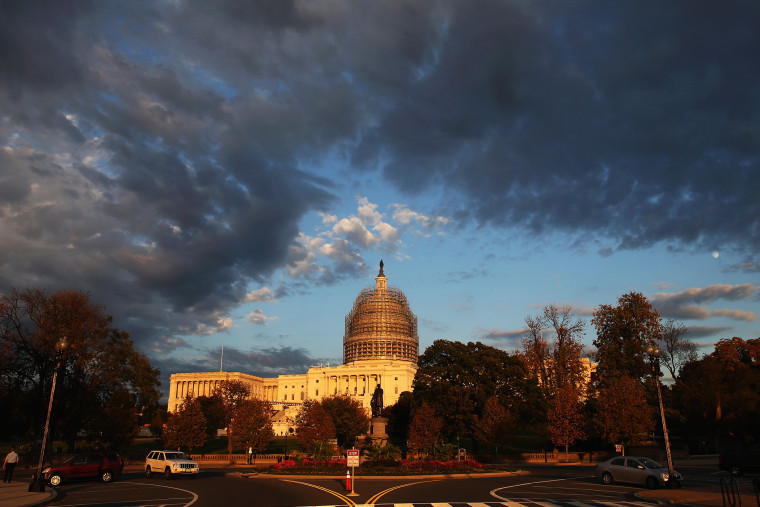No one thinks it’s a good policy.
The tax code is riddled with dozens of tax breaks that are constantly scheduled to expire. But the so-called tax extenders are renewed year after year as Congress remains both unwilling to scuttle them and unable to face the tough trade-offs and costs involved in making them permanent.
RELATED: Obama administration moves to limit corporate inversions
Republicans and the Senate Democratic leadership wanted to break that cycle for once, but the White House quickly rejected the emerging deal, which would have made some business tax breaks permanent — a major boon for corporations — while letting tax breaks for the poor expire.
So Congress is now poised to continue that status quo for another year, extending more than 50 tax breaks that include special-interest giveaways for NASCAR track builders, Puerto Rican rum distillers, and Hollywood film studios.
“The president blew it up, so we’re just going to do a clean, one-year deal,” incoming House Budget Committee Chair Paul Ryan said at a Wall Street Journal event on Monday.
GOP Ways and Means Chair Dave Camp and Senate Majority Leader Harry Reid had been putting together a bill that would significantly expand the research and development tax break and make it permanent, along with tax breaks for commuting expenses, teacher expenses on school supplies, and a write-off for state and local taxes. The cost of the proposal, which would not be offset, topped $400 million. The emerging bipartisan proposal would have extended most of the temporary tax breaks for the next two years.
Instead, the House is now expected to vote on a bill that will simply continue most of the tax breaks for yet another year, after President Obama indicated last week that he was prepared to veto the emerging Reid-Camp deal. Along with Senate liberals, the administration objected to the plan for providing permanent tax relief to corporations while failing to provide relief to lower-income Americans as well. Expansions to both the Child Tax Credit (CTC) and Earned Income Tax Credit (EITC) are scheduled to expire in 2017, and Republicans left the provisions — which largely benefit lower-income, working Americans — out of their plan.
If those two tax breaks expire, “more than 16 million people in low-income working families would be pushed into, or deeper into, poverty,” according to the Center on Budget and Policy Priorities. “Some 50 million Americans overall with modest incomes — including 31 million children — would lose part or all of their EITC or CTC and see their after-tax income go down.”
The House and Senate’s tax-writing committees had been approaching a deal that would have included the tax breaks for lower-income Americans, but the negotiations fell apart after Obama issued his immigration executive order, Politico reports. Republicans maintain that more undocumented immigrants would claim the tax breaks if Congress permanently expanded them.
For the corporations and special interests who have spent billions lobbying Congress on the issue, the only thing worse than the chronic uncertainty surrounding the tax extenders would be if they were not continued at all.
“As the business community has long indicated, seamlessly extending, enhancing, or making permanent these important tax provisions this year provides a necessary bridge to comprehensive tax reform while preventing filing season delays and onerous tax increases,” says the Chamber of Commerce.
RELATED: Unfinished business: Congress faces busy December
So Congress is now expected to resort to the path of least resistance: a one-year extension of most of the tax breaks that will force legislators to revisit the issue in 2015. Both parties agree that it’s an inefficient, unproductive way of doing tax policy. But despite the glimpses of bipartisanship, the current political environment has jettisoned the possibility of compromise.
“The best option would be for Congress to decide which provisions are worth making permanent and pay for them by cutting unproductive tax expenditures,” writes Len Burman, a former Treasury official during the Clinton administration. “But the more likely options is that they’ll play another round of kick-the-can.”
